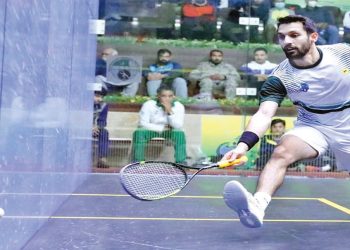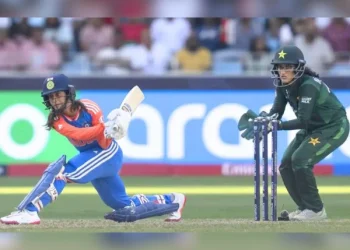Boxer Lin Yu-ting of Taiwan secured her first Olympic medal on Sunday, winning in front of a cheering crowd that chanted her name. This achievement came just a day after Algerian boxer Imane Khelif also earned a medal, following a period of online abuse and scrutiny over their participation in the Paris Games.
Lin triumphed over Svetlana Kamenova Staneva of Bulgaria with a 5:0 victory in the women’s 57-kilogram quarterfinal, moving on to the semifinals and guaranteeing herself at least a bronze medal.
Both Lin and Khelif have been entangled in a controversy concerning gender identity and sports regulations. Critics have highlighted their disqualification from last year’s world championships by the International Boxing Association (IBA), which claimed they failed unspecified eligibility tests for women’s competition.
Lin, who is scheduled to face Esra Yildiz Kahraman of Turkey at Roland-Garros on Wednesday, expressed her aspiration to continue and win a gold medal. She chose not to address the recent online criticism, opting instead to deactivate her social media accounts before her first Olympic match.
The International Olympic Committee (IOC) has condemned the “hate speech” directed at the boxers and criticized the IBA’s testing process, which was reportedly based on suspicions rather than clear criteria. IOC spokesman Mark Adams denounced the IBA’s approach, calling it problematic due to its lack of transparency.
What exactly is the issue?
The core issue involves the IBA’s gender tests during the March 2023 World Boxing Championships, which led to the disqualification of Khelif and Lin. No details were provided about the tests, and both athletes were subsequently suspended from future IBA events. They have since faced abuse and false claims on social media, a situation deemed “unacceptable” by Andrea Florence, director of the Sports & Rights Alliance.
What does the IOC say?
The IOC has clarified that the boxers are not transgender and has criticized the arbitrary nature of the tests. Adams noted that the tests were hastily conducted and questioned their validity. The IOC maintains that the competition in Paris adheres to the same rules as previous Games in Rio and Tokyo, where the sex listed on an athlete’s passport is the determining factor.
When asked if the IOC could have prevented the controversy, Adams emphasized the need to address whether the athletes are women based on their passports and history, asserting that they are.



















![This handout photo released by the IRGC’s official Sepah News Telegram channel shows smoke billowing from a site bombed by Israel in Tehran early on June 13, 2025 [Sepah News/AFP]](https://mmnews.tv/wp-content/uploads/2025/06/Israel-attack-on-Iran-1-350x250.jpg)
















